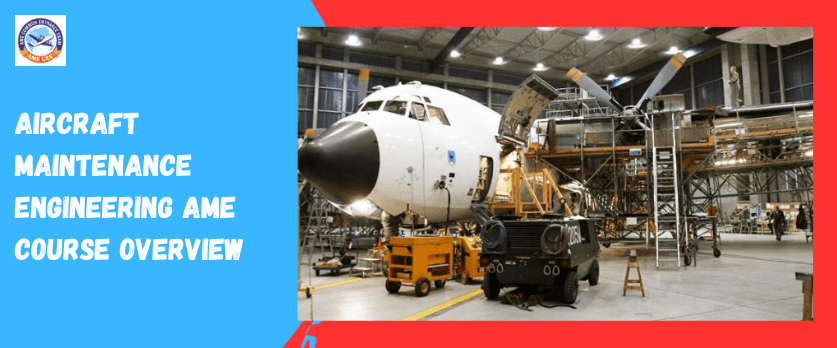Aircraft Maintenance Engineering (AME) is a specialized field that involves the maintenance, repair, and overhaul of aircraft to ensure their safety and airworthiness.
Here’s an overview of the Aircraft Maintenance Engineering course:
Aircraft Maintenance Engineering Course Details
Eligibility Criteria
Candidates must have completed their 10+2 level of education with Physics, Chemistry, and Mathematics (PCM) or equivalent from a recognized board.
Course Duration
The AME course typically consists of theoretical and practical training over a duration of three years, divided into six semesters.
Specializations
The course curriculum is divided into two main categories
Category A: Covers maintenance of aircraft structures, engines, and systems.
Category B: Includes avionics, dealing with aircraft electronics, navigation systems, and instrumentations.
Course Structure
The course involves both theoretical classroom learning and practical training.
Theoretical modules cover subjects such as aircraft rules and regulations, aerodynamics, aircraft systems, materials and hardware, maintenance practices, etc.
Practical training includes hands-on experience in maintenance workshops, engine laboratories, and aircraft hangars.
Certification and Licensing
After completing the AME course, students need to undergo practical training and gain experience working on actual aircraft.
Upon successful completion of training and passing the examinations conducted by the Directorate General of Civil Aviation (DGCA) or relevant aviation authority in the respective country, candidates are awarded an AME license.
Career Opportunities
AMEs can find employment opportunities in airlines, maintenance and repair organizations (MROs), aircraft manufacturing companies, aviation regulatory bodies, etc.
Roles include Aircraft Maintenance Technician, Line Maintenance Engineer, Quality Control Inspector, Maintenance Planner, and more.
Skills Required
Strong technical and analytical skills.
Attention to detail and adherence to safety protocols.
Problem-solving abilities and teamwork.
Regulatory Compliance
AME courses and training need to comply with the regulations set by aviation authorities like DGCA in India, FAA (Federal Aviation Administration) in the USA, EASA (European Union Aviation Safety Agency) in Europe, etc.
Continuous Learning and Licensing Renewal
AMEs need to undergo continuous learning and periodic re-licensing to stay updated with advancements in aircraft technology and safety standards.
Aircraft Maintenance Engineering courses offer a comprehensive blend of theoretical knowledge and practical hands-on experience, preparing individuals for a career in maintaining and ensuring the airworthiness of aircraft.
To become an aircraft maintenance engineer you may could join AME engineering through AME COMMON ENTRANCE EXAM (AME CEE) this examination you may join AME engineering approved by DGCA, EASA or UGC.


